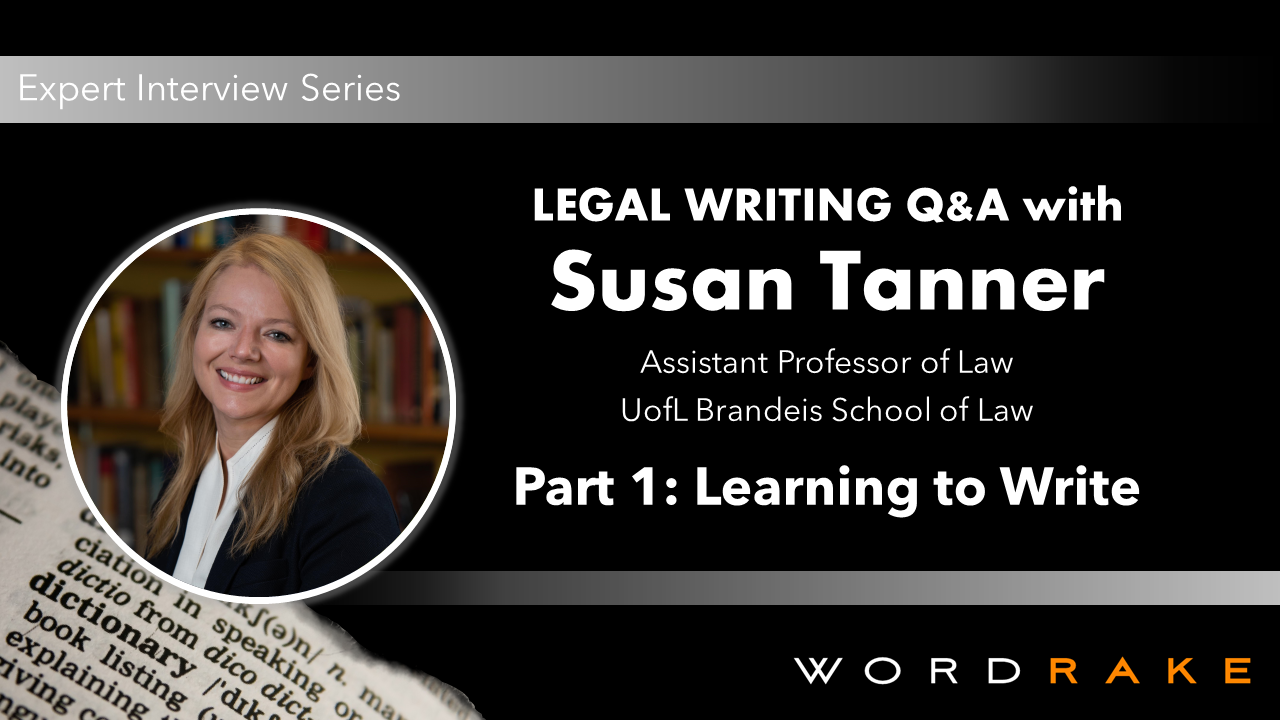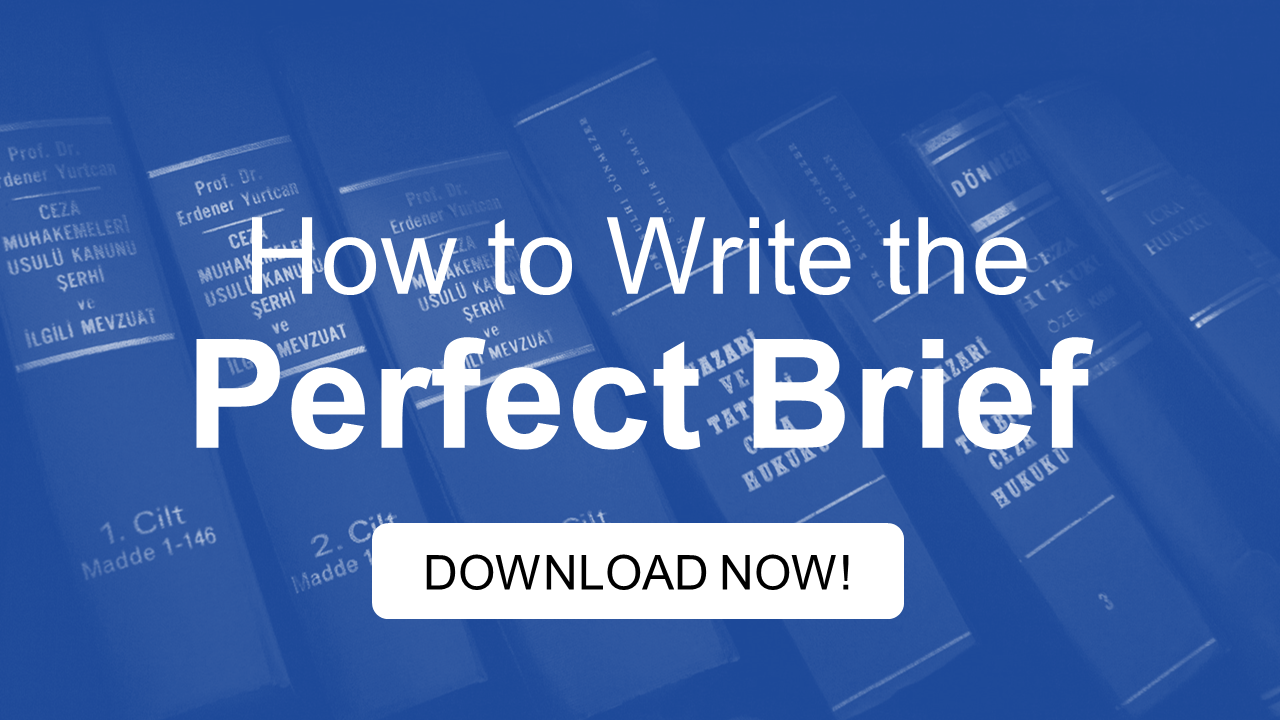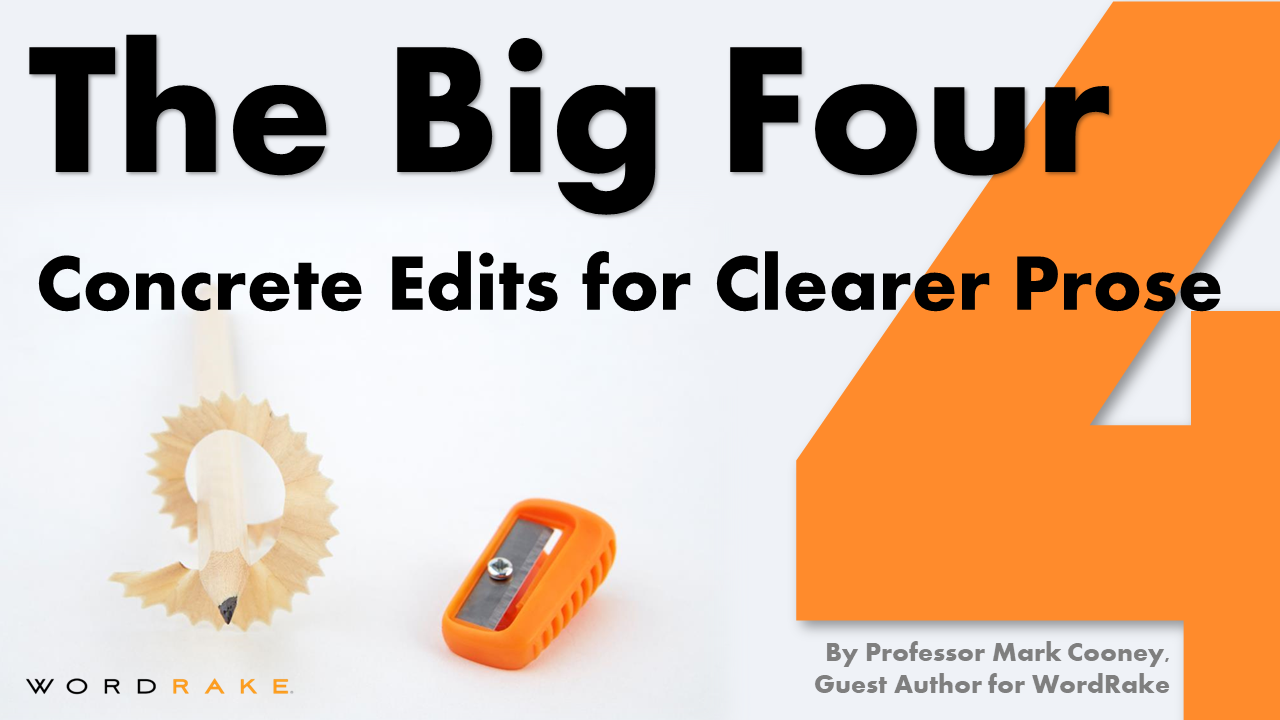Those unfamiliar with the law might imagine it to be very black and white--but legal writing experts like Professor Susan Tanner know that legal practice is about holding tension between truths. In this first part of her legal writing interview, Professor Tanner addresses learning to write well while balancing the needs of clients and the court.
What is your role and how did you get to where you are today?
I'm an Assistant Professor of Law at University of Louisville, Brandeis School of Law. I started off doing corporate work – first as an executive and then as a corporate lawyer for a large law firm. But I’ve always loved teaching and scholarship, so I taught at a private school when I was getting my masters, I tutored while in law school, and I kept going back to school. I went back to get my PhD and then started teaching law.
How do you define good legal writing?
Good legal writing is about effective communication. It's not merely about presenting information; it's about conveying ideas in a way that the intended audience can readily understand. This is a crucial aspect of what we call the rhetorical situation in legal writing. Whether you're writing for a judge, a client, or a colleague, the language and level of detail should be tailored to their needs and level of legal knowledge.
And effective legal writing is closely aligned with its purpose. Sometimes the goal is to explain complex legal concepts, other times it's to persuade. The writing style and structure should reflect and support this purpose. It's worth noting that in some situations, it might be in your client's best interest to be less than perfectly clear. A skilled legal writer needs to be adaptable and recognize when such an approach is necessary and ethical.
What are the top 3 to 5 characteristics of good legal writing?
For most work that young lawyers do, I would say clarity is the most important characteristic. Clear writing demonstrates clear thinking and ensures that the reader can easily grasp the main points without confusion.
Intellectual honesty would be the second. This involves accurately representing facts, acknowledging counterarguments, and not overstating the strength of your position. It's essential for maintaining credibility and ethical standards in legal writing.
Third – adaptability. Good legal writing is flexible and can be tailored to different audiences and purposes. A skilled legal writer can adjust their style and content for various contexts - from formal court documents to client emails, from persuasive briefs to objective memos.
It's important to note that these characteristics can sometimes be in tension with each other. For instance, there may be situations where it's in a client's best interest to be less clear, or where persuasive writing might push the boundaries of intellectual honesty. A skilled legal writer navigates these tensions, making judicious choices based on the specific context and ethical considerations of each writing task.
Do you view writing as a product or a process? How do you define that? What difference does it make?
I view writing as a process, not just a product. This perspective was significantly influenced by one of my professors, Linda Flower, who, along with John R. Hayes, pioneered the Cognitive Process Theory of Writing in the 1980s. This approach recognizes that writing involves multiple, recursive stages: planning, drafting, revising, and editing. Writers don't simply transcribe pre-formed thoughts; they engage in a complex cognitive journey, moving back and forth between these stages as they develop their ideas and refine their work.
In legal writing, this process-oriented view is particularly important. It encourages writers to grapple deeply with complex legal concepts, continually refining their understanding and argumentation as they write. It's not just about producing a document; it's about problem-solving and meaning-making.
Viewing writing as a process makes a significant difference in how we approach it because:
- It changes how we teach writing, focusing on strategies for each stage rather than just the final product.
- It encourages writers to be more reflective and strategic about their choices throughout the writing process.
- It promotes a growth mindset, helping writers see their skills as developable rather than fixed.
What is the biggest mistake you see lawyers make when communicating with clients?
The biggest mistake I see lawyers make when communicating with clients is a lack of empathy. We are trained to be methodical, almost robotic in law school. But one of the most important parts of practicing law is relationship building. Legal issues often have significant emotional implications for clients. Lawyers who focus solely on the legal technicalities without acknowledging or addressing the emotional dimension may come across as uncaring or disconnected from their clients' needs.
And many lawyers forget that their clients may not have a legal background. They might use excessive legal jargon, leaving clients feeling confused or intimidated. Some lawyers are quick to jump to solutions without fully understanding the client's concerns or goals. This lack of active listening can erode trust and lead to misaligned expectations.
To overcome this lack of empathy, lawyers should practice active listening, explain legal concepts in plain language, and regularly check for understanding. It's crucial to acknowledge the emotional aspects of legal issues and involve clients in decision-making processes where appropriate. By cultivating empathy, lawyers can build stronger relationships with their clients, leading to better communication and more effective legal representation.
We often say that writing is about communicating information to the reader, or even translating it, rather than just delivering information. Do you believe that’s true? How does it change your approach to legal writing?
I absolutely agree. Effective communication is a two-way street, and it's crucial to recognize this in legal writing. Too often, we fall into the trap of blaming either the speaker or the audience for misunderstandings, but it's never that simple.
In legal hermeneutics, we've really messed this up. We tend to use an outdated, unscientific way of thinking about language and conveying meaning. It's a perspective that doesn't align with what we now know about how language and comprehension actually work.
During my time at Carnegie Mellon University, I had the opportunity to work with cognitive brain imaging researchers who were studying the neural basis of language. That experience was eye-opening. When you see all the different ways brains light up in response to the same words, you start to understand that meaning is far more slippery than we often assume. It's always co-constructed between the writer and the reader. This realization fundamentally changes how we should approach legal writing. Instead of thinking about writing as a one-way transmission of information, about getting the “perfect wording,” we need to consider it a collaborative process of meaning-making.
How do you use storytelling in legal writing?
In legal writing, storytelling serves multiple crucial functions. At a basic level, it helps us organize facts, present arguments, and engage our readers. A well-crafted narrative can make complex legal issues more accessible and memorable. It can help judges and juries understand the human context of a case, going beyond dry recitations of law and fact.
But the importance of narrative in law runs much deeper. As Paul Ricoeur argues, narrative is fundamental to how we understand human action and time. In legal contexts, this means that storytelling isn't just a persuasive tool—it's a way of making sense of events, motivations, and consequences. When we construct a legal narrative, we're not just presenting information; we're creating a framework for understanding and judgment.
How long does it take to develop a young legal writer? How does development, coaching, and mentorship change between law school and practice? What advice do you have for young writers? What advice do you have for others coaching young writers?
I'll let you know when I'm done learning. I think we are always improving. And then when we get a handle on everything, the rules change.
I see the biggest change between the first day of 1L year and the first day of 2L year. About half the change comes through 1L classes, where students learn the basics of legal analysis, research, and writing. The other half typically comes from summer internships, where students get their first taste of practical legal writing in a professional setting.
The learning curve steepens again when young lawyers enter practice. They must adapt their writing to real-world demands, client needs, and firm or organization-specific styles. This phase often involves learning to write more concisely, mastering new document types, and adjusting to tighter deadlines.
For young writers, my advice would be to embrace feedback and criticism—it's essential for growth. Read extensively, both legal and non-legal materials, to improve your writing style. Practice regularly by taking on pro bono work or volunteering for writing-intensive projects. Seek out mentors and writing resources in your organization.
For those coaching young writers, provide specific, constructive feedback. Explain the reasoning behind your edits or suggestions. Whenever possible, ask as many questions as you give suggestions for improvement. This approach encourages critical thinking and helps the young writer understand the thought process behind effective legal writing. Encourage writers to think about their audience and purpose for each document. Be patient, as developing strong legal writing skills takes time. Provide opportunities for varied writing experiences and recognize improvement in order to build confidence.
In law practice, when time really is money, we may forget that we're not just trying to improve the piece of writing before us, but we also are working to improve the young lawyer we're mentoring. It's important to keep this bigger picture in mind, balancing the immediate needs of the task with the long-term development of the writer.
How do you approach teaching the balance between creativity and convention in legal writing?
I’m a sociolinguist by training, so I think language, like the law, should be stable but never stand still. Legal writing, by its nature, demands a certain level of convention. There are established formats, accepted phraseologies, and expected structures that serve important functions in the legal system. These conventions provide stability, ensuring that legal documents are recognizable, interpretable, and functional within the established framework of the law.
However, the law is not static, and neither should legal writing be. Society evolves, new situations arise, and the law must adapt. This is where creativity comes into play.
In teaching this balance, I emphasize several key points:
- Master the conventions first: Students need to understand and be proficient in the traditional forms and expectations of legal writing. Their future clients deserve it, and their future employers will expect it.
- Context matters: The appropriate balance between creativity and convention can vary depending on the audience, the type of document, and the specific legal context.
- Incremental innovation: I teach students to think of creativity in legal writing not as radical departure, but as thoughtful innovation. Small creative choices in structure, language, or argumentation can be powerful without undermining the document's credibility.
- Learn from other disciplines: I introduce students to concepts from linguistics, rhetoric, and communication studies. This interdisciplinary approach can inspire creative ways to enhance legal writing while respecting its conventions.
- Practice and feedback: Students are given opportunities to experiment with creative approaches in a safe environment, receiving constructive feedback on how well they've maintained the necessary conventions while introducing innovative elements.
About Dr. Susan Tanner
Dr. Susan Tanner is an Assistant Professor of Law at UofL Brandeis School of Law. Her research and teaching primarily focus on Law and Language and Legal Writing. She has taught courses in legal research and writing, lawyering skills, law, rhetoric and public policy, and privacy law.
Her academic background is diverse, holding a master's in Rhetoric and Composition from Arizona State University, a JD from Indiana University Maurer School of Law, and a PhD in Rhetoric from Carnegie Mellon University. At Carnegie Mellon, Dr. Tanner studied Rhetoric and Corpus and Computational Linguistics. She was honored as both an A.W. Mellon Digital Humanities Fellow and a Presidential Fellow, which allowed her to explore the intersection of technology and language in legal contexts. Dr. Tanner's most recent research has been in enthymematic/syllogistic reasoning and narrative in the law. This work reflects her ongoing interest in the intersection of logic, language, and legal argumentation
Dr. Tanner describes herself as a Math and Science geek at heart and admits to being a reluctant and labored writer. However, she's found that her current research allows her to ask and help answer truly interesting questions. This aspect of her work resonates with what initially drew her to Physics as an undergraduate and now fuels her passion for research and writing in the legal field. Her unique background bridges the gap between traditional legal scholarship and emerging digital methodologies, bringing a fresh perspective to legal education and research.
About the Legal Writing Interview Series
WordRake founder Gary Kinder created the software to help legal writers edit for brevity and simplicity. In continued dedication to the most effective legal writing, this Series highlights the experience and advice of experts from professors to writing coaches to litigators. Looking to help boost your legal writing skills? Get a free 1-week trial of WordRake here.








